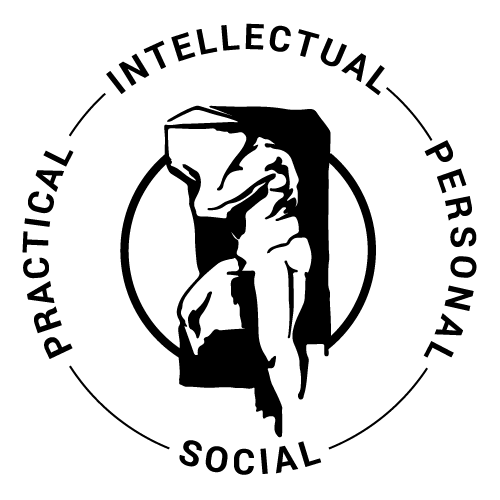Be “careful not to ask [your] questions of the [students]. Only when they seek to answer questions which they themselves ask, do they commit themselves to the hard work of finding answers that are meaningful to them…give only as much guidance and encouragement as is necessary to elicit the students’ interest.”— Maria Montessori
Inspiration should be the fundamental mission of your teachers because it galvanizes your interest, so important to learning. Active Listening is a powerful teaching tool which promotes an inspiring relationship between teacher and student. For one thing, Active Listening conveys deep respect for your independence in thought and value.
Active Listening is the ability to focus deeply on what another person is saying, comprehend the information and respond thoughtfully. In contrast, when you passively listen, you aren’t fully paying attention. The aim of Active Listening is full understanding of what the other is saying in the service of arriving at truth.
The Active Listener authentically tries to understand what the other person means, empathizing with the other’s point of view by working hard to grasp his or her full context. This means trying to understand the other person’s level of knowledge about a subject, their age, what emotional issues may be affecting their thinking, and the set of ideas they are using to grasp the subject.
Only by Active Listening do we end up having a full idea of what the other person means and thereby gain the opportunity to respond with appropriate facts and reasoning. This creates a dialogue in which the participants feel that their thoughts and ideas are truly being considered, which promotes trust. A real exchange of thoughts occurs rather than a mere joust of ideas. In this way, Active listening promotes the spread of truth.
When teachers actively Listen to you, they nurture your independent judgment. Used in teaching, this means the Active Listener asks clarifying questions about students’ terms, respectfully allowing each student time to finish what he or she is saying before responding. The listener importantly conveys an attitude of alert interest in what the student says.
The Active Listener must try to leave aside any personal feelings about the subject and squash the desire to assert and forcefully drive home the rightness of his or her own opinion. These actions only serve to distract a student from deep thinking and learning by bringing in issues of social hierarchy, personal power, and self-worth (i.e., do I know enough, what does the teacher think of me, he’s got more status than I, I should listen to him). These issues elicit powerful, distracting emotions.
Further, the Active Listener tries to sense any motives in the student’s statements beyond the informational. For example, if a student in a class on Freud asks “What if a son is extremely fond and affectionate toward his mother—does that mean he has an Oedipus complex?” The teacher needs to be aware that the student’s study of Freud may have caused him to feel anxiety about his love for his mother. The teacher needs to respond with gentleness, general reassurance, and kindness.
Independent judgment is the well-spring of real choice, and good discussions nurture true individuality and judgment. Unfortunately these days, teachers sometimes find it difficult to conduct good discussions because students have been led to believe all opinions are equal in value and everyone should open their mouths to babble whatever they wish, no matter how inaccurate or trivial. Resulting from the reign of the Postmodernist attack on objectivity, this belief cripples students’ minds by encouraging them to think that any opinion is acceptable, regardless of foundation, as long as it is theirs.
While falsely stoking student egos by making them feel that whatever they think is important, this practice stops them from learning that true, valuable opinion must be grounded in facts and good reasoning.
Postmodernist ideology further deforms a student’s concept of self by equating diversity with group membership. In the Postmodernist schema, one’s diversity depends on race or ethnic background or sexual preference rather than the considered, ideological judgment of an individual mind. It promotes a collectivist concept of tribal or social diversity rather than true ideological difference.
In contrast, the Active Listener takes the student’s ideological point of view seriously and tries to respond to it carefully. Just imagine the kind of productive political discussions we all might have if we used these principles!
Some people have a rare, natural ability or tendency to listen like this, but since it can be learned, there’s hope for the rest of us. It is also typical of the Montessori teacher, because of his or her deep training in careful observation of students. The Great Connections brings Montessori philosophy and practice to all that we do, specifically geared to the young adult.
We want to help you become a skilled Active Listener with strong independent judgment.



